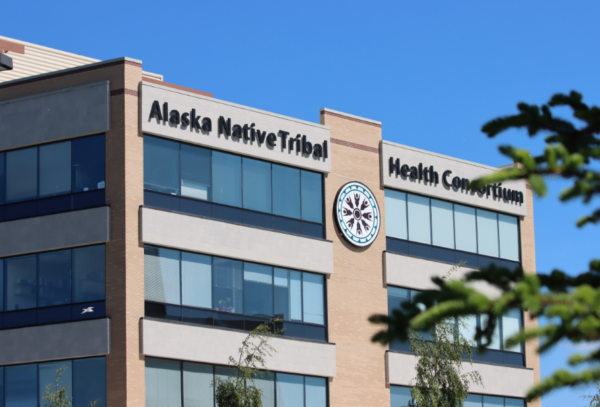
During the pandemic, the rate of sexually transmitted infections nationwide has increased, while the rate of testing for STIs has decreased, according to reports from the Centers for Disease Control and Prevention.
Stigma and lack of access can hold some Alaskans back from getting tested. That’s a problem, because Alaska has the nation’s highest rate of chlamydia and the second highest rate of gonorrhea, according to the CDC.
The Alaska Native Tribal Health Consortium wants to change that. It’s now sending free, at-home STI test kits by mail. Anyone with an Alaska mailing address, including a P.O. box, can order one. ANTHC is running the self-swab program in partnership with the Alaska Department of Health and Social Services and Johns Hopkins University.
The hope is that the at-home testing program makes it easier and more discreet for people to detect and treat their STIs, said Hannah Warren, an STI prevention manager at ANTHC.
Before the self-swab test initiative, the only way to get tested in a village in the Yukon-Kuskokwim Delta was through a local clinic by a community health aide. Another option was to fly to Bethel and test at the Yukon-Kuskokwim Health Corporation, the Bethel Family Clinic or another local doctor.
The odds of running into someone you know at the clinics in Bethel are fairly high. If you live in a small village, the odds of personally knowing your community health aide are even higher.
“It might be nerve-wracking to go to somebody you know who’s a local health aide or local nurse — maybe they’re your cousin, your auntie, your uncle, maybe your mom, your dad, sister, brother, uncle, or even grandma — and to ask them for an HIV or STI test,” said Warren.
Although the CDC estimates that one in five Americans has a sexually transmitted disease, Warren said that STIs unfortunately still come with some stigma attached.
“So when you’re asking for HIV or STI tests, you’re thinking about not just the implications of being at risk for HIV or STI, but then you’re also thinking about the relationships that you have in your community and how it might impact the way that you interact with others in your community,” said Warren.
The self-swab kit can detect gonorrhea, chlamydia and trichomoniasis, all of which are curable, said Warren.
Warren said if an Alaskan’s test results are positive, ANTHC will connect them with a health care professional who can walk them through treatment options.
There is also a separate free test for HIV. Those results show up on the test in about 20 minutes.
Warren said that sexually active people over the age of 13 should test about once every three months. You can order your free STI test online at www.iwantthekit.org and an HIV test at iknowmine.org.
[Sign up for Alaska Public Media’s daily newsletter to get our top stories delivered to your inbox.]




